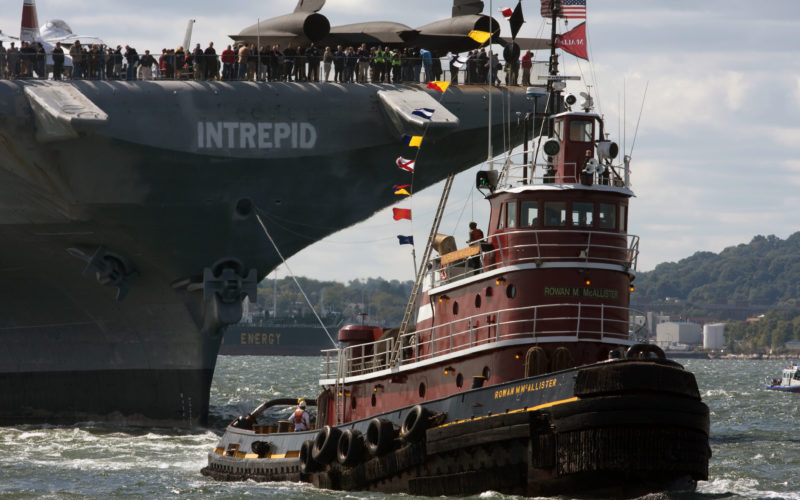The following is the text of a commentary by Thomas Allegretti, chairman of the American Maritime Partnership:
By nature, we as Americans don’t think very much about how we receive the goods and services we need. And yet so much relies on water transportation — the nation’s safest and most environmentally-friendly mode. American maritime helps deliver our bounty of agricultural products, coal that generates our electricity, and gas that fuels our vehicles for example. This uniquely American industry is as deeply interwoven into the fabric of our country’s history as the U.S. flags that fly above the 40,000 vessels operating on our inland and coastal waterways. As President John Adams noted, “No group … did more for establishing our country than the American Merchant Seamen… [and] their record speaks eloquently of their devotion and sacrifices.” This proud service continues today and is helping make our nation safer, stronger, and more secure.
As today’s administration and members of Congress from both sides of the aisle have recently noted, America is the world’s leading economy because it is the world’s leading maritime power, and a strong and vibrant maritime industry helps ensure the United States maintains its expertise in shipbuilding and waterborne transportation. Supported by the Jones Act, which ensures vessels operating in our domestic waterways are U.S.-built, U.S-crewed, and U.S. owned, the country’s shipyards and the domestic maritime industry are critical to America’s economic prosperity, military strategy and national security, and perform these roles at zero cost to the federal government.
America’s domestic maritime industry is responsible for nearly 500,000 American jobs across the nation, which provide close to $100 billion in annual economic impact in all 50 states. Domestic maritime industry jobs are good-paying, family-wage jobs, and for every direct maritime job, an impressive five indirect jobs are created — which results in more than $28 billion in annual wages. Every year, American maritime moves nearly one billion tons of domestic cargo and plays an important role in relieving congestion on the country’s crowded roads and railways, all while strengthening our national, economic, and homeland security.
U.S. maritime companies are also investing billions of dollars to meet the demands of the nation’s booming domestic oil production. New U.S.-flag vessels currently being built and upgraded will provide millions of barrels in new capacity. The Energy Information Administration estimates that America’s domestic maritime industry currently moves tens of million of barrels of crude oil and petroleum products throughout the United States every month. The industry will continue to play a vital role in the country’s energy growth because transporting cargo on our nation’s waterways is one of the most cost-effective and efficient ways to move crude oil and petroleum products.
A crucial part of American maritime is the nation’s domestic shipyard industry, which builds, repairs, maintains, and modernizes the largest and most sophisticated Navy and Coast Guard in the world. In recent years, U.S. shipbuilders have delivered more than a thousand vessels annually, representing billions of dollars in investments. Over the past year, U.S. shipyards entered into hundreds of contracts for new vessels, including the construction of state of the art oil tankers and the world’s first LNG-powered containership, which the White House recently recognized as critical to the future of maritime transportation.
Our domestic maritime fleet provides capacity and manpower that our armed forces routinely draw upon to support U.S. military operations. Critical assets such as American ships, crews to man them, ship construction and repair yards, intermodal equipment, terminals, cargo tracking systems, and other infrastructure are available to our military in times of war, national emergency and peacetime.
Without American maritime, the U.S. would be completely dependent on foreign owned and flagged vessels for the transport of all waterborne commerce in and around the country. A report by the Lexington Institute stated that without the domestic maritime industry and the Jones Act, “the Department of Homeland Security would be confronted with the difficult task of monitoring, regulating, and overseeing all foreign-controlled, foreign-crewed vessels in internal U.S. waters.”
Our domestic maritime industry has a distinguished legacy of helping to feed, fuel, and move our nation as it has grown and expanded, while also boosting our national and economic security.American maritime is as vital today as it was when President Adams helped lead our young nation. So as you put gas in your car, feed your family, or flip on a light switch, be sure to remember the hundreds of thousands of American maritime men and women who safely, efficiently, and proudly work to make those moments a routine part of our everyday life.

